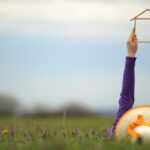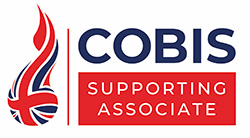In life, many of the limits we perceive are not real barriers but restrictions ingrained in us during our early years. These limits are akin to the ropes that hold back elephants or the lids that contain fleas—powerful forces that shape how we view our potential but which, with the right mindset, can be overcome.
Think about elephants in the wild. The story goes that when they’re young, they’re tethered to large trees with thick ropes. As they grow, the ropes and trees become smaller, yet the elephants remain tied. By the time they are fully grown, they could easily break free, but they don’t because their minds have been conditioned to believe that the small rope is still an unbreakable restraint. This is much like how many of us have been conditioned in our early years to think we can’t achieve certain things. We are told that we are not good at something or that certain paths are not for us, and these beliefs stick, limiting our potential long into adulthood.
A similar phenomenon occurs with fleas. When placed in a jar with a lid, fleas quickly learn to limit their jumps to avoid hitting the top. Even when the lid is removed, they continue to jump at the same restricted height, unaware they are now free to leap much higher. Like the fleas, many of us have been conditioned by past experiences to believe our potential is capped at a certain point. This is not true—we can leap much higher if we dare to push beyond our perceived limits.
Then there are the crabs in a bucket. When one crab attempts to escape, another pulls it back in, ensuring that none of them escape. This analogy highlights the influence of our social circles. Sometimes, those around us—whether intentionally or not—hold us back from reaching our full potential. They may laugh, discourage, or subtly suggest that we can’t achieve our goals. It’s important to recognise these negative influences and distance ourselves from those who act as “crabs,” pulling us back down.
As educators, you have the opportunity to help your students see beyond these early-life restrictions. Encourage them to identify the “ropes,” “lids,” and “crabs” in their lives—the limiting beliefs, self-doubt, and negative influences that hold them back. Use stories like those of elephants, fleas, and crabs to illustrate how easily we can fall into these traps and how important it is to break free.
To facilitate these discussions, consider asking your students the following questions:
- What are some beliefs or thoughts that have held you back in the past?
- Can you identify any “ropes” or “lids” in your life that keep you from achieving your goals?
- Are there people in your life who act as “crabs,” pulling you back when you try to move forward?
- What steps can you take to overcome these barriers and reach your full potential?
Remember, the most powerful “crab” in the bucket is often our own internal dialogue—our “Radio Me.” It’s vital that we tune into the positive, encouraging voice that pushes us forward rather than the negative voice that holds us back.
Empowering students to recognise and overcome these self-imposed barriers is critical for their development. Help them see that, like the elephants and fleas, they are capable of so much more than they realise. Encourage them to challenge their limits, ignore the negative influences, and strive to become the best versions of themselves. By doing so, you set them on a path to success and personal fulfilment.
These topics are part of the many concepts we cover in our motivational workshops. If you would like to learn more about how humanutopia can help your school, then please get in touch.
















Leave a Reply